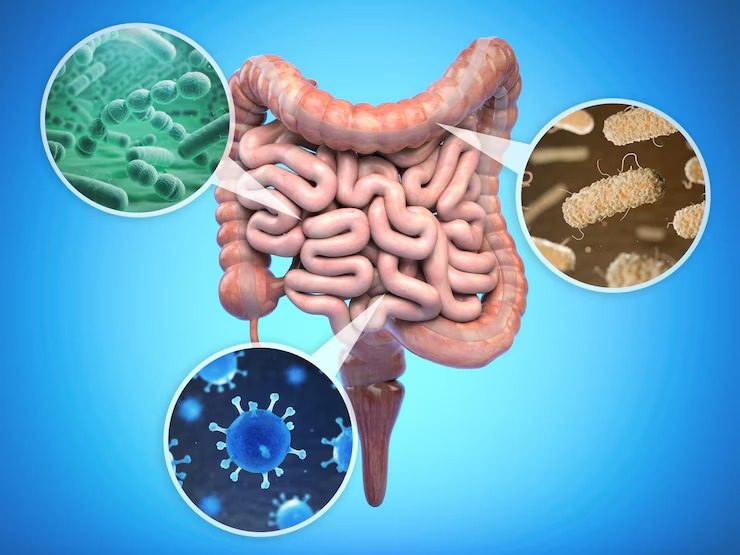Gut health is the foundation of your overall wellness. It impacts everything from your digestion and immune system to your energy levels, skin, and even mood. At the centre of this wellness ecosystem are prebiotics and probiotics—two powerful allies that support a balanced and thriving gut microbiome.
But what exactly is the difference between prebiotics and probiotics? And how can you use both to build a healthier gut?
What Are Prebiotics?
Prebiotics are a type of dietary fiber that your body can’t digest. Instead, they act as food for the good bacteria already living in your digestive tract. By nourishing these helpful microbes, prebiotics encourage the growth of healthy gut flora and contribute to a stronger immune system and smoother digestion.
Top Prebiotic Foods to Add to Your Diet:
- Garlic – Rich in inulin and fructooligosaccharides, promotes healthy bacteria and reduces inflammation
- Bananas – Especially unripe ones, contain resistant starch that feeds gut flora
- Apples – A great source of pectin, which boosts beneficial gut bacteria
- Oats – Full of beta-glucan, a prebiotic fiber that supports digestion
- Leeks, Onions & Asparagus – Packed with inulin and other fiber types
- Dandelion Greens – Fiber-rich and anti-inflammatory
Incorporating a variety of prebiotic-rich foods helps fuel your gut microbiome, enhances nutrient absorption, and supports the immune system.
What Are Probiotics?
Probiotics are live bacteria and yeasts that are good for your health—especially your gut. These friendly microbes restore balance to your digestive system, particularly after it’s been disrupted by things like antibiotics, illness, or poor diet.
Top Probiotic Foods to Add to Your Diet:
- Yogurt – Contains live cultures like Lactobacillus and Bifidobacterium
- Kefir – A fermented milk drink loaded with beneficial bacteria
- Sauerkraut & Kimchi – Fermented vegetables full of probiotics and digestive enzymes
- Tempeh – A fermented soybean product rich in probiotics and protein
- Miso – A traditional Japanese paste made from fermented soybeans
- Kombucha – Fermented tea packed with probiotics and antioxidants
- Sourdough Bread – Naturally fermented, with gut-friendly microbes
Including fermented foods regularly can help rebalance your gut flora, improve digestion, and strengthen your immune defense.
How Prebiotics and Probiotics Work Together
Think of probiotics as the beneficial seeds in your gut and prebiotics as the fertilizer that helps them grow. They work together to maintain harmony in your digestive system. While probiotics add good bacteria, prebiotics feed them and help them thrive.
Example Meal for Gut Health:
A bowl of yogurt (probiotic) topped with oats and sliced apples (prebiotics) = powerful synergy for a healthy gut.

Benefits of a Balanced Gut Microbiome
- Better digestion and regular bowel movements
- Improved nutrient absorption
- Stronger immune system
- Reduced inflammation
- Enhanced mood, focus, and mental clarity
- Less bloating, fatigue, and digestive discomfort
Simple Tips to Boost Gut Health Naturally
- Add garlic, onions, or leeks to your daily cooking
- Snack on bananas or apples regularly
- Start your day with oatmeal topped with fruit
- Include fermented foods like kimchi, sauerkraut, and miso in your salads or meals
- Have a serving of kefir or yogurt as a daily snack
- Sip kombucha as a fizzy, gut-healthy alternative to soda
Conclusion: Feed Your Gut, Fuel Your Life
A healthy gut is the gateway to better digestion, stronger immunity, and a happier mind. By balancing prebiotics and probiotics in your diet, you can take control of your gut health naturally—without pills or fad diets.
Start small: choose whole, fermented, and fiber-rich foods. Your gut will thank you.


